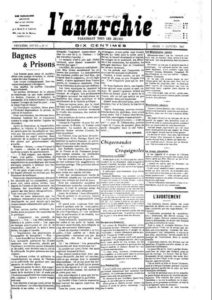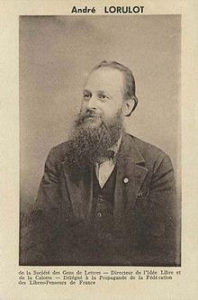Eva Ludemann ~ Arabier & Seculier. De opmars van afvallige moslims in de Arabische wereld
Historicus en journalist Eva Ludemann heeft een boek geschreven over de afvallige moslim in de Arabische wereld. Zij onderzocht in welke mate jonge mensen in de Arabische wereld gebroken hebben met de islam en of de extremistische bewegingen invloed hebben gehad op hun besluit de islam te verlaten. Uit het jaarlijks gehouden onderzoek van ‘Arab Youth Survey’ uit 2019 vindt 66% dat religieuze instituten moeten worden hervormd omdat ze een te grote invloed hebben. De helft van de jongeren vindt dat religie de ontwikkeling van de Arabische wereld belemmert en dat religie tegelijkertijd aan invloed verliest in de regio.
Ludemann stelt de vraag hoe is het om ex-moslim te zijn in de Arabische wereld, je los te wortelen van het systeem dat is doortrokken van geloof.
Sinds de Arabische Lente en vooral ook als reactie op het fundamentalistische geweld van groeperingen als ISIS, stelt een groeiende groep jongeren op sociale media vragen over de islam. Zolang ze niet online gaan, zijn ze aangewezen op verouderde, starre, religieuze teksten. Ze willen zelf kunnen bepalen waarin ze wel en niet geloven en hoe ze hun geloof belijden.Voor Arabische jongeren is internet wat de boekdrukkunst ooit was voor de christelijke wereld: ze hebben toegang gekregen tot informatie die tot voor kort niet beschikbaar was. Op sociale media debatteren ze over nieuwe grondwetten en pluriformiteit. Openlijk durft echter niemand te zeggen dat ze ex-moslim zijn. En degenen die wel openlijk hun geloof hebben afgelegd zijn gevlucht naar Europa, de VS of Canada.
Maar de Arabische regimes zijn als de dood voor hun opmars en daarom hebben ze blasfemie en afvalligheid in veel gevallen voor de wet gelijkgesteld aan terrorisme. Maar de geest is uit de fles. Zoals wij in het Westen zijn ontkerkelijkt, zo zijn ook steeds meer Arabische jongeren langzaam maar zeker aan het ‘ontmoskeeën’- met dank aan internet, aldus Ludemann.
We Are Facing Economic Collapse On Top Of A Pandemic. What We Do Now Matters.
As the COVID-19 virus spreads, the U.S. economy has begun to crumble like a house of cards.
The sudden collapse of the economy is revealing how the “great economy” that Donald Trump has been boasting about on Twitter for the past three years was in fact a mirage caused by wild Wall Street rallies, and boosted by Trump’s massive tax cuts and deregulatory efforts contrast which rolled back all kinds of environmental standards with total disregard for the impact on public health and the climate crisis.
As the shutdowns orchestrated to stop the spread of the novel coronavirus create financial ruin for individuals and businesses across the country, the economy is “teetering on collapse,” points out Robert Pollin, distinguished professor of economics and co-director of the Political Economy Research Institute at the University of Massachusetts at Amherst, in this exclusive interview for Truthout.
But Pollin also argues that — with the right decisions — we have the means not only to rescue the complete collapse of the economy, but also to move in the direction of a just, equitable and sustainable socioeconomic order. The following transcript has been lightly edited for length and clarity.
C.J. Polychroniou: Can you give a succinct summary of the myths and realities of Trump’s economy from the day he took office and up until the outbreak of COVID-19?
Robert Pollin: Throughout his presidency, until basically last week, Trump’s mantra on the economy is that conditions have never, ever been better. This was always a ludicrous assertion. But as distinct from many other of Trump’s assertions, this one was based on at least some slivers of evidence, with the two critical slivers being the stock market and the unemployment rate. It is true, first of all that, as of last July, the U.S. stock market had reached an historic high, with the S&P 500 index exceeding 3,000 for the first time. It is also true that the official unemployment rate had hit a record low of 3.5 percent as of February.According to the Bureau of Labor Statistics, the last time the official U.S. unemployment rate was below 3.5 percent was 1953.
But the stock market rise reflected, more than anything, a combination of (1) companies deliberately inflating their own stock prices through buying back their shares on the open market; and (2) the reinforcement, with Trump, of the upward distribution of income and wealth that has proceeded now for 40 years under neoliberalism. For example, with Trump’s signature across-the-board tax cuts in 2017, the benefits for the poorest 20 percent of the population amounted to an average of $100 while the richest 1 percent received $55,000. Over the next decade, the poorest 20 percent would then see their taxes go up while the richest 1 percent would benefit from further cuts.
With the historically low official unemployment rate, if we add up the people who were working part-time but wanted full-time jobs as well as those who have temporarily given up looking for work, plus we account for the share of people who have dropped out of the labor force following the 2007-09 Great Recession, we are now at a more realistic unemployment rate of nearly 10 percent. This is about 16 million people, roughly equal to the entire populations of New York City, Los Angeles and Chicago. On top of this, wages had only begun to start inching up with the unemployment rate at its historically low level. This is after 40 years of most working people experiencing falling or stagnating real wages.
In short, our current economy was never anything close to the halcyon image projected by Trump until this week. In any case, all of those rosy descriptions are now a thing of the past.
Read more
Analysis Of Logical Fallacies In Debates Regarding Gender Issues In The 16th Lok Sabha
 Abstract
Abstract
The 543 members of the Lok Sabha are supposed to replicate the voice of 133 crore Indians. The unparalleled importance of the Lok Sabha makes it important for us to scrutinize the nature and form of arguments presented in it. This paper uses the concept of logical fallacies to do the same. It picks up the debates on four different bills, spread across five days of Lok Sabha sittings. The debates on the chosen bills – the Maternity benefit (Amendment) Bill 2016, the Criminal Law (Amendment) Bill 2018, the Trafficking of Persons (Prevention, Protection and Rehabilitation) Bill 2018 and the Rights of Transgender Persons Bill 2014, mark out the most important Lok Sabha discussions on gender and gender related issues in the first five years of Sri Narendra Modi’s Prime Ministership. The paper points out the logical fallacies committed in them, tries to understand why they were committed and explores what those fallacious arguments indicate with regard to the beliefs and ideologies of the parliamentarians. It shows how the chains of logic in the representatives’ arguments break down as a result of their preconceived notions and biases, lack of information and most importantly- deep seated patriarchy.
Key Words: logical fallacy, gender, parliament, debate, women, transgenders, society
Introduction
During discussions on bills, members speak for a bill, against a bill, or a take a position which is somewhere in between the two. Whichever the case, the members attempt to justify their positions using arguments. These arguments mostly contain valid reasonings or follow a proper logical chain where the premises lead to the conclusions. Sometimes however, the arguments are invalid- the premises in them might not logically lead to the conclusions, they might involve improper assumptions, or they might try to divert the attention from the point of concern. When there are such problems in the reasoning in an argument, the argument is called logically fallacious. Work in the field of pointing of out logically fallacious arguments and classifying them started with Aristotle [i] , and the field has expanded and developed since. “A fallacious argument, as almost every account from Aristotle onwards tells you, is one that seems to be valid but is not so” (Hamblin 1970: 12). In these arguments, the premises don’t lead to the conclusions and there is a mistake in reasoning (Copi, et. al. 2014: 109-110). These arguments have been classified into types considering their individual natures and scopes [ii]. A most common type for example, often found in political arguments is the Ad Hominem fallacy . Here the argument is aimed against the people holding the differing opinion and not the opinion in itself, although “the character of an adversary is logically irrelevant to the truth or falsity of what that person asserts, or to the correctness of the reasoning employed” (Cohen and Nagel 1998: 107).
It is mostly manifested in the form of personal attacks, or as it is called in the political arena-‘mudslinging’. Parliamentarian Shri Tathagata Satpathy for example, in the debate on the Maternity Benefit (Amendment) Bill 2016, dated 9th March 2017 says, “We have been kind of overburdened, bored and sick of this Government just throwing these economy-related Bills on the House and on all of us: the torture of making business easy for a few handful people, who will make money to be paid to political parties, and we are bearing the brunt of passing all those laws which will help a handful of Indians, not the large number of Indians” (130). Regardless of the truth or falsity of his claims, the kind of economic policies pursued by the government has no bearing on the merits/demerits of the bill at hand. The parliamentarian, by saying the above is trying to discredit the character of the supporters of the bill but provides no arguments for or against the bill in itself. Again, during the debate on the Criminal Law (Amendment) Bill 2018 dated 30 July 2018, Professor Saugata Roy said, “I thought for one day, whether what they were saying is right, whether we are proving ourselves to be blood thirsty, thirsty by asking for death penalty for rapists. Then, my conscience told me, no. Those who rape children of 16 or 12 years, do not deserve any mercy. Let them die, if it is proved. That is why, I support this bill. This is not being blood thirsty. This is being just” (244). There might be good enough reasons for supporting capital punishment for serious crimes but here Prof. Roy relies solely on his feelings and what he thinks his ‘conscience’ told him. Such arguments appeal to the hearer’s emotions more than their reasoning, and commit the fallacy called ‘appeal to emotion’ (Wrisley 2018: 98-101). While emotions might be important parts of arguments, an argument solely resting on the waves of emotions and lacking any concrete base of logical reasoning is deemed to be fallacious.
Read more
De Bananeneter van Romainville ~ Veganisme in een anarchistische kolonie
In het begin van de vorige eeuw ontstonden in Frankrijk de eerste anarchistische leefgemeenschappen, ook kolonies genoemd, die vaak ook het veganisme propageerden en in praktijk brachten. De kolonie in het dorpje Romainville bij Parijs was in de jaren tien een van de vele kolonies in Frankrijk. Het leven in de kolonies kon naar eigen wil en keuze worden ingevuld, al zal niet overal geëxperimenteerd zijn de vergaande vormen van veganisme zoals in Romainville.
Initiatiefnemer was de fanatieke veganist André Lorulot (1885-1963), rond 1910 redacteur van het tijdschrift l’anarchie. Niet alle bewoners van de leefgemeenschap deelden zijn enthousiasme voor de extreme vorm van veganisme die hij propageerde en die hij als wetenschappelijk beschouwde.
Vegetarisme bestaat al sinds de oudheid. Pas in de negentiende eeuw ontstond met name in Frankrijk een beweging die het veganisme propageerde – ook al kwam de term pas later in gebruik – en in het begin van de vorige eeuw ontstonden een aantal veganistische leefgemeenschappen. De bewoners waren voor het merendeel afkomstig uit het anarchistische milieu. Voor de Eerste Wereldoorlog telde Frankrijk zo’n tiental van deze leefgemeenschappen, verspreid over het land, die voor korte of langere tijd hebben bestaan. In die jaren, waarin veel plattelandsbewoners naar de steden trokken, moet het niet moeilijk geweest zijn ergens een leegstaand buurtschap of enkele lege boerderijen te vinden. Het aantal bewoners per kolonie bedroeg meestal enige tientallen.
Veganisme in Frankrijk
De eerste anarchistische kolonie in Frankrijk was gevestigd bij het dorpje Vaux (dep. Aisne), tussen 1903 en 1909. In 1911 ontstond in Bascon, een dorp in de buurt, een naturistische, veganistische kolonie. Stichter van deze communes was Louis Rimbault (1877-1949). De belangrijkste propagandist van deze kolonie was Jean Labat (1892-1932), vanwege zijn lange haar en baard plaatselijk bekend als Jezus Christus. Hij maakte foto’s van de kolonie en haar bewoners, die hij als ansichtkaarten verkocht.
Een andere belangrijke propagandist van het veganisme was George Butaud (1868-1926), die in 1923 in de kolonie in Bascon ging wonen. Daarnaast begon hij in Parijs een veganistisch restaurant, het Foyer Végétalien (40 Rue Mathis), waar ook een slaapzaaltje en een bibliotheek waren gevestigd en waar cursussen Esperanto, scheikunde, natuurkunde en Frans werden gegeven. Samen met Rimbault en de anarchiste Sophie Zaïkowska (1880-1939) stichtte Butaud in 1923 bij Luynes in het departement Indre-et-Loire, een zelfvoorzienend veganistisch dorp: Terre Libérée. Ongeveer twintig mensen woonden permanent in de kolonie, per jaar kwamen er tussen de twee- en driehonderd bezoekers, o.a. voor cursussen. Ondanks diverse interne ideologische conflicten en de oorlog, bleef de kolonie tot 1949 bestaan.
 Anarchistisch tijdschrift
Anarchistisch tijdschrift
In 1911 had Louis Rimbault het wel gezien met het communeleven in Bascon. Bij lokale arbeiders in de omgeving had hij weinig belangstelling ondervonden voor zijn opvattingen over anarchistisch federalisme. In Parijs vond hij een baantje in een garage en maakte hij kennis met een aantal anarchisten die betrokken waren bij het tijdschrift l’anarchie. De redactie daarvan was gevestigd in een pand in de Rue du Chevalier de la Barre, vlakbij de Sacré-Coeur, waar ook de drukpers stond en lezingen konden worden gehouden.
L’anarchie was in 1905 opgericht door de typograaf en actieve anarchist Albert Libertad (pseudoniem van Albert Joseph, 1875-1908), die in die tijd in Parijs populaire lezingen over het anarchisme hield. In l’anarchie – oplage zo’n vierduizend exemplaren – pleitte hij voor een individualistisch anarchisme en verzette hij zich tegen de bestaande maatschappijvorm, loonarbeid, huwelijk, dienstplicht, verkiezingen, roken, alcohol en het eten van vlees. Hij was tegenstander van het anarchosyndicalisme omdat deze strijdwijze slechts tot lotsverbetering van de arbeiders zou leiden, en aan de bestaande maatschappelijke ongelijkheid niets zou veranderen.
Illegalisme
De sinds zijn geboorte kreupele Libertad was door zijn agitatie en propaganda een voortdurende doorn in het oog van autoriteiten, politie en justitie. Op een avond werd hij door agenten zo hard in elkaar geschopt, dat hij aan de gevolgen ervan overleed. Het redacteurschap van l’anarchie ging over naar Maurice Vandamme (1886-1974), die al eerder bijdragen voor het blad had geschreven onder het pseudoniem Mauricius. Deze zette het redactionele beleid van Libertad voort, samen met zijn vriendin Rirette Maîtrejean (1887-1968). Zij schreef felle artikelen waarin zij de maatschappelijke positie van vrouwen
bekritiseerde en pleitte voor vrije liefde, iets wat zij ook in praktijk bracht. Een andere medewerker was de fanatieke alcoholbestrijder en veganist André Roulot, die schreef onder het pseudoniem André Lorulot. Mauricius en Lorulot waren pleitbezorgers van individuele en gemeenschappelijke, indien nodig gewelddadige verzetsdaden tegen de heersende maatschappelijke orde. Dit illegalisme, waarbij anarchisten ook inbraken en overvallen pleegden met het doel de maatschappelijke orde te ondermijnen, zorgde ook voor financiële armslag voor de anarchistische beweging. Read more
The INSANE Logic Of The YODEL
Video lecture on the wide & wild world of the YODEL based on the book YODEL IN HIFI. This film premiered in LONDON on 11 March 2014 at the Peckham Liberal Club as part of the Muckle Mouth series. Book YODEL IN HIFI: From Kitsch Folk to Contemporary Electronica. For info:http://uwpress.wisc.edu/
Break the voice and you enter the marrow of existence. The film documents the ubiquitous and unique presence of yodeling just about everywhere. From roots deep in the earth to soundings that probe deep space… And no genre is safe: opera, hiphop, rock, pop, folk, jazz, house, techno, reggae… FEATURES: Werner Herzog, Bernhard Betschart, Phil Minton, Myriam van Imschoot & Doreen Kutzke, Barbara Hannigan, Taylor Ware, Francelle Maria, Drag Queen Lady KinMee, Dominatrix Manuela Horn, a yodeling cat, Tarzan, Bob Marley, Aka Pygmies, Prison work songs, hollerin’, Jimmie Rodgers, SE Rogie, Mike Johnson, Kia Brekkan, Kishore Kumar, Cyrill Schläpfer, Erika Stucky, Christine Lauterburg, Alice Babs, Focus, Mental Theo & Charly Lownoise, Bobbejaan Schoepen, Honeymoon Killers, Harry Torrani, George Van Dusen, Brian Eno, Cranberries, Buzzcocks, People Like Us, Mysterious Asthmatic Avenger, Shelley Hirsch, Jacques Dutronc, Munich House Mafia, Franzl Lang, Fatima Miranda, Kristina Fuchs, Zabine, Meredith Monk, Neil Rolnick, Anna Kiefer, Paul Dutton, Mij, Tim Buckley, Slim Whitman, Mal Webb, Wandervogels, Chinese yodeling, tea-picking yodels, Korean, Japanese, Filipino, Basques, Cambodian, Taiwanese, Persian, Tuvan, Georgian…
This film uses original footage but mostly relies on found and archival footage. My hope & goal is to make a feature length documentary using high quality stock and more original footage. I am looking to partner with a producer and filmmaker with interest in the subject.
All sources & credits for found footage used in this film available upon request.
Yodel in HiFi: From Kitsch Folk to Contemporary Electronica :: http://uwpress.wisc.edu/books/4594.htm
YODEL-AY-EE-OOOO: The Secret History of Yodeling Around the World :: http://www.routledge.com/
Wreck This Mess Radio :: http://www.mixcloud.com/wreckthismess/
Youtube Channel: https://www.youtube.com/channel/
Bart Plantenga is a freelance researcher, writer, translator, and editor. He is the author of Yodel-Ay-Ee-Oooo: The Secret History of Yodeling around the World and the compiler of the CD Rough Guide to Yodel. He lives and works in Amsterdam and is the disc jockey of radio show Wreck This Mess.
Author’s website: bartplantenga.weebly.com/
Author’s blog: bartyodel2.wordpress.com
Multatuli online
Multatuli – pseudoniem van Eduard Douwes Dekker (1820-1887) – wordt beschouwd als de belangrijkste schrijver uit het Nederlands taalgebied. Zijn invloed op de Nederlandse literatuur, de koloniale politiek, het feminisme en de arbeidersbeweging is baanbrekend geweest. Het Multatuli Genootschap/Stichting Multatuli Huis wil de belangstelling voor deze schrijver en denker levend houden door op multatuli.online zijn volledige werk en correspondentie en alle documenten (zoals teksten, afbeeldingen, archivalia) die op hem betrekking hebben digitaal en in samenhang te publiceren. De website is bestemd voor belangstellenden en onderzoekers maar ook voor wie hier kennismaakt met Multatuli.
De realisering van dit project zal stapsgewijs plaatsvinden. Op dit moment zijn alle zelfstandige publicaties van Multatuli aanwezig, alle bewaard gebleven correspondentie (ca. 5000 brieven), een biografie (door Dik van der Meulen) en het complete voor deze website gedigitaliseerde Multatuli Archief (eigendom van het Multatuli Genootschap en bewaard door Allard Pierson, De Collecties van de Universiteit van Amsterdam).
Daarnaast bevat de website een Multatuli Encyclopedie, een Multatuli Atlas, een Multatuli Lexicon en toegang tot een ruime hoeveelheid secundaire literatuur. Waar mogelijk wordt gewezen naar eerder gedigitaliseerde werken en documentatie, zoals te vinden bij de Koninklijke Bibliotheek (de Digitale Bibliotheek voor de Nederlandse Letteren en Delpher) en het Huygens Instituut.
Het colofon vermeldt alle personen en instellingen die tot nu toe een bijdrage hebben geleverd. Om een zo compleet mogelijk beeld van Multatuli’s werk en levensloop tot stand te brengen kunnen we de hulp van kenners en geïnteresseerden gebruiken. Wie over documenten – brieven, beeldmateriaal of secundaire literatuur – beschikt die hier niet mogen ontbreken of wie anderszins een bijdrage wil leveren aan multatuli.online (financieel of in natura), wordt van harte uitgenodigd om zich te melden bij de redactie van de website. Ook onjuistheden of suggesties voor verbetering kunnen aan de redactie worden doorgegeven.
Deze website is een initiatief van het Multatuli Genootschap en de Stichting Multatuli Huis. Door (fiscaal vriendelijk) donateur te worden ondersteunt u het werk van het genootschap en de stichting en verzekert u de instandhouding van deze website.
Bovenaan iedere pagina van deze website worden delen van de Multatuli Collectie getoond – brieven, documenten, manuscripten, foto’s, afbeeldingen en meer – om een indruk te geven van de rijkdom en de verscheidenheid van die collectie.
Bezoek de site: https://multatuli.online/home







